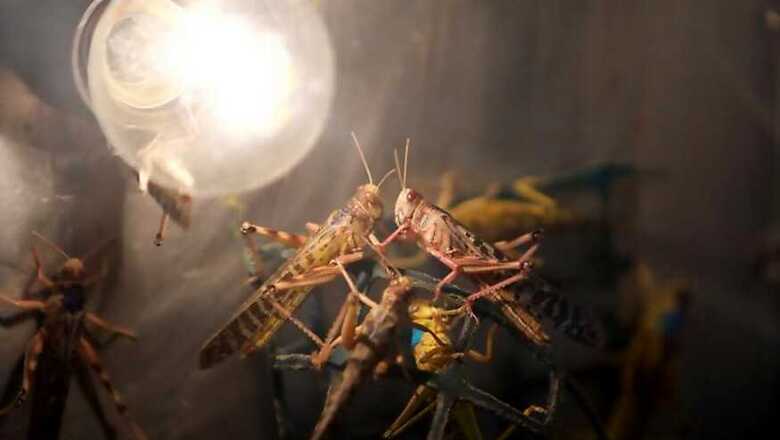
views
Indian and Pakistani officials, including scientists, discussed a recent locust outbreak that has affected villages in Rajasthan's Jaisalmer, close to the Pakistan border. The meeting, held at the border village of Munabao, was followed by issuing an alert in all districts that adjoin the Pakistan border.
The Locust Warning Organisation (LWO), based in Jodhpur, is preparing to face the attack.
"Locusts have been seen in Jaisalmer. These have come from Pakistan and may spread to places such as Barmer, Jaisalmer, Phalodi, Bikaner and Suratgarh. We have used 'malathion' (a chemical pesticide) and are ready with all the required equipment to tackle the locusts. Our teams have reached all the circles," LWO official Mahesh Chandra had told ANI here last month.
The insects are reported to attack the region after a gap of 26 years, and are generally sighted during the summer and rainy months of June and July. The last major outbreak occurred in Rajasthan in 1993.
The UN Food and Agriculture Organisation (FAO) had earlier this month warned India and Pakistan that the swarms may reach the subcontinent from Ethiopia and Somalia “in the next few days”. The FAO also said, "In India, ground control operations are in progress against first to third instar hoppers and groups in Jaisalmer district of Rajasthan."
It added, "More hatching and the formation of hopper groups are expected in the coming weeks in Rajasthan, which may be supplemented by groups of adults and perhaps a few small swarms arriving from spring breeding areas."
From June 1 to 15, teams had been successful in treating 1,707 hectares of crop land against the pests.
Swarms of adult locusts can fly at the speed of 150 km per day, and consume food their own weight in a day. A small swarm can eat as much as 35,000 people in one day. Such attacks, for this reason, are considered a threat to food security and crop health.



















Comments
0 comment